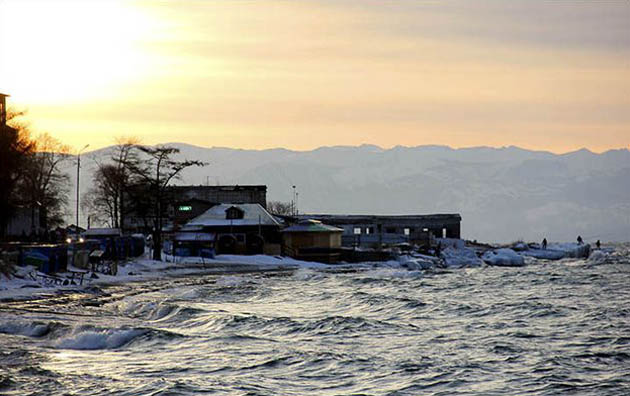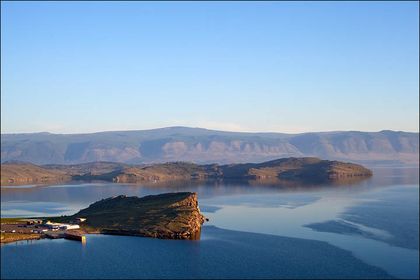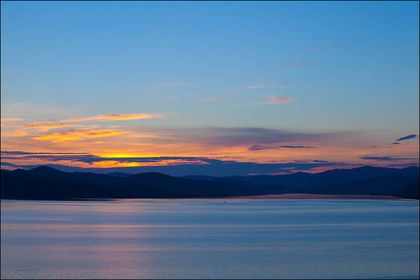World’s largest freshwater lake in danger
Baikal contains 20% of the world’s fresh water. If the lake's level drops below 456 metres, it could cause irreversible harm to the ecosystem.
The Siberian Times, Euronews · RUSSIA · 25 MARCH 2015 · 11:00 CET

Lake Baikal, the world’s largest freshwater lake is under threat. It lies around 5,000 kilometres east of Moscow and holds about one fifth of the world’s unfrozen freshwater reserves.
Illegal logging, construction and mineral mining are among the threats which some blame for the fact that the water level in the lake has reached its lowest in 60 years.
The lake’s water level has dropped by 40 centimetres compared to 2013, falling to 456.09 metres and that’s just nine centimetres over the minimum admissible level set by the Russian government.

Environmentalists say that extremely hot and dry summers and felling forests around the lake could also have contributed to the drop in levels. According to some researchers more time is needed to reach more definitive conclusions.
“I say we have to wait and see, one, two years will pass, we will gather all information and then we will be able to say whether is a natural phenomenon or not. At the moment it is difficult to say,” explained senior researcher Andrei Zhdanov.
NEW THREAT
Lake Baikal is also facing another environmental threat, this time from across the border: Mongolia plans to build a series of new hydroelectric power plants.
Residents in Baikal and in Mongolia, backed by environmental organisations and campaign groups, have called on the Inspection Panel of the World Bank to defer funding for what they see as 'hazardous' projects. Among the proposals is one to dam a river and divert water to the Gobi Desert.
The World Heritage Committee has twice warned Mongolian officials that they must follow international laws and regulations governing the protection of important UNESCO sites, like Lake Baikal.

Sergey Donskoy, Head of the Ministry of Natural Resources in Russia, recently said: “Russia is concerned about plans for the construction of hydropower plants on the River Selenga, which may affect the ecosystem of Lake Baikal. Russia points out that Mongolia needs to involve competent Russian organisations to assess the impact of the project.”
Meanwhile, water levels in Baikal are continuing to drop and, when measured on February 16, were just centimetres above the critical point of 457 metres.
Published in: Evangelical Focus - science - World’s largest freshwater lake in danger
